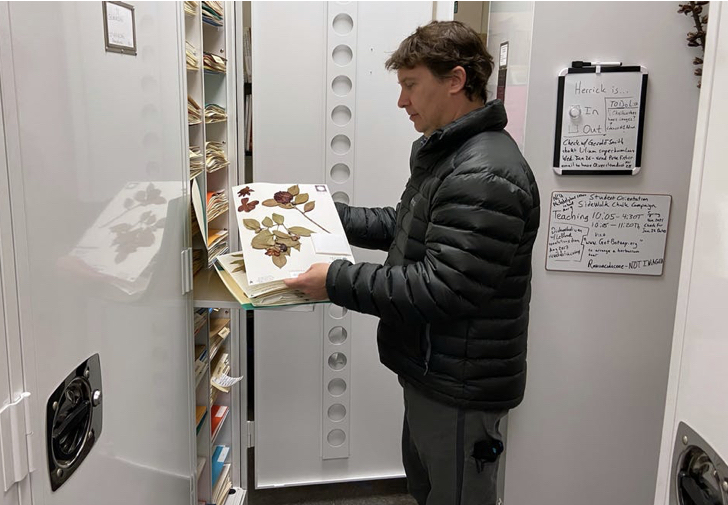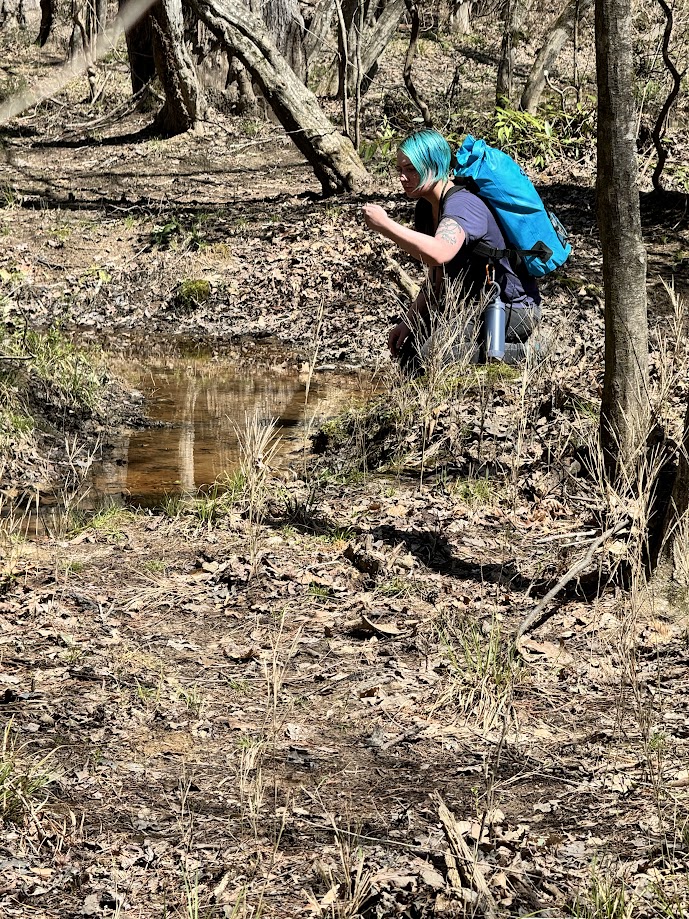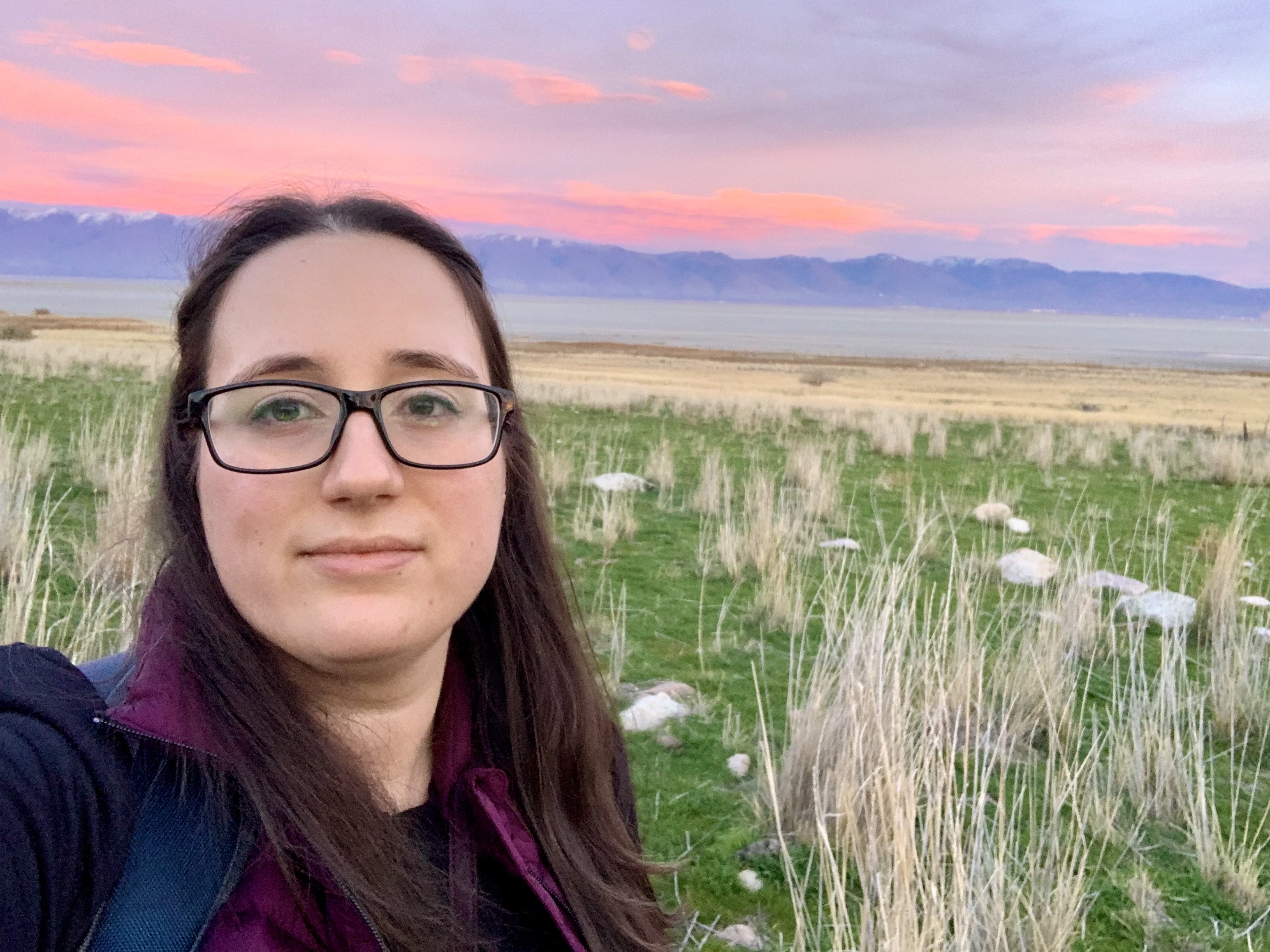
Herrick H.K. Brown
Curator
University of South Carolina - A.C. Moore Herbarium (USCH)
Email: hbrown@mailbox.sc.edu
We are pleased to provide this content that has been developed by staff of the A.C. Moore Herbarium and the South Carolina Department of Natural Resources Natural Heritage Trust Botany and Plant Conservation Group.
Feedback and suggestions will be used to improve the quality of this content.

Herrick H.K. Brown
Curator
University of South Carolina - A.C. Moore Herbarium (USCH)
Email: hbrown@mailbox.sc.edu

Avery O. Browning
Assistant Curator
University of South Carolina - A.C. Moore Herbarium (USCH)
Email: averyob@mailbox.sc.edu

Csilla A. Czakó
Botany Data Specialist, USCH Research Affiliate
South Carolina Department of Natural Resources (SCDNR) - Natural Heritage Trust
Email: czakoc@dnr.sc.gov

The following resources include identical information offered in three different formats. For convenience, choose the format that best suits your needs or learning style. Regardless of the format, each file presents detailed guidance on how to complete basic data entry (only). At USCH, records are processed in stages. The first stage involves basic data entry. Additional information, such as georeferenced coordinate data, is added in subsequent stages.
This resource was written and compiled by Csilla Czakó (SCDNR NHT Botany and Plant Conservation Program) and Avery Browning (Assistant Curator A.C. Moore Herbarium at the University of South Carolina), with contributions from A.C. Moore Herbarium at the University of South Carolina Staff and Affiliates including but not limited to: Curator Dr. Herrick Brown, Research Affiliate Maura C. Flannery, Resident Xylologist Dr. Mihaly Czakó, Curator Emeritus Dr. John B. Nelson, former Collections Manager Charlie Harmon, State Botanist and Team Lead of the SCDNR NHT Botany and Plant Conservation Program Keith Bradley. Carol Ann McCormick, the wonderful Curatrix of UNC Herbarium provided much needed insight on Collector Name formatting. Thank you to all the All-SC Herbaria Meeting participants (SC, NC, and GA herbarium curators and staff) who contributed their thoughts and wealth of experience. Thank you to Katie Pearson and the Symbiota Team for patiently answering all of our questions. All screenshots and images were taken from the Symbiota SERNEC portal. Symbiota Data Fields (accessed via Symbiota Docs) and The Darwin Core Quick Reference Guide were frequently used in the making of this document.
Given the number of people who worked so hard to bring this project together, when using any or all contents of these documents, please reference it as "South Carolina Herbaria Data Entry Standards".
This resource was written by Avery Browning (Assistant Curator A.C. Moore Herbarium at the University of South Carolina) with contributions from Herrick Brown (USCH) and Csilla Czakó (SCDNR - South Carolina Department of Natural Resources). It provides a tutorial and indexed reference guide for using the lightbox at USCH when imaging herbarium specimens.
Imaging Example Video 1 (slide 11)
Imaging Example Video 2 (slide 17)
Imaging Example Video 3 (slide 21)
Imaging Example Video 2 (slide 27)
Atlas of Historical County Boundaries of South Carolina from The Newberry Library - Dr. William M. Scholl Center for American History and Culture. Since its establishment as a British colony, South Carolina's county boundaries have changed many times. This resource offers an interactive map that illustrates these changes. Additionally, shapefiles can be downloaded for use in GIS applications. We have found this resource to be particularly helpful for georeferencing older specimens and assigning correct, modern county equivalents to 19th-century geopolitical subunits (e.g. Parish, District, etc.).
Google Spreadsheet of Collector Names and Aliases initiated by Csilla Czakó. South Carolina has a long history of natural history exploration that has been documented by many individuals over time. We hope to continue to build this list through collaboration with community partners.
Bionomia is a tool developed by David P. Shorthouse that facilitates attribution of collection objects (specimens) to people who collected or identified them. While the primary objective of Bionomia is to give credit where credit is due, the interface also provides opportunities for biographical research. Since Bionomia integrates seemlessly with other resources like ORCiD, WIKIDATA, and GBIF, there are numerous opportunities to resolve aliases associated with collections personnel.
The next SC Consortium meeting will be in 2026 - stay tuned for more information!
August 5th, 2025 - Consortium of South Carolina Herbaria - 2nd annual in-person meeting, link to video playlist of in-person meeting with herbarium staff, affiliates, researchers, and students. Includes presentations: The Role of Herbaria in Plant Conservation (Martin Hamilton), Clemson Mobile Imaging Unit Update (Dave Damrel), Advances in the Clemson Herbarium Collection (Lorena Endara), The Status of the Converse University Herbarium (Douglas Jensen), Herbaria Adopted by the University of North Carolina at Chapel Hill Herbarium (Carol Ann McCormick), Cryptogam Status in South Carolina (Csilla Czakó & Hannah Rainey), Lichen Specimen Curation (Gary Perlmutter), Curating Bryophytes (Blanka Aguero), New Information on the Ecology of Rhododendron minus (Ericaceae) (Charlie Horn), From Specimens to Digital Data Updates (Herrick Brown), and Data Standards (Csilla Czakó & Avery Browning).
June 13, 2025 - Consortium of South Carolina Herbaria - June 2025 This meeting discusses revisions of taxonomic names by individuals in the SEINet environment.
March 13, 2025 - Association of Southeastern Biologists, 86th Annual Conference - An Unexpected Journey into Invertebrate Data from Herbarium Specimens - a Portal to Cross-disciplinary, Integrated Data Through a New Protocol (Avery Browning). This presentation discusses the USCH protocol for extended specimen data regarding invertebrates found on herbarium collections and their importance.
December 19, 2024 - Herbarium Advisory Committee - December 2024 First meeting in the revival of the Herbarium Advisory Committee (notes).
October 21, 2024 - Notes from Nature Q&A and presentation by guest speaker Michael Denslow
August 12, 2024 - Morning session of in-person meeting with herbarium staff, affiliates, researchers, and students. Includes presentations: Notes from Nature and Other Citizen Science Opportunities (Michael Denslow), Tone Deaf: Choosing Corporatization Over Culture at the Expense of Critical Inquiry (Lana Burgess), Status of Duke Herbarium (Blanka Aguero), Integrated Collections (Eric LoPresti), DNA in the Herbarium (Mihaly Czakó), Art in the Herbarium (Maura Flannery).
August 12, 2024 - Afternoon session of in-person meeting with herbarium staff, affiliates, researchers, and students. Includes presentations: Brief History of Herbaria and SERNEC (Herrick Brown), SCDNR Botany Data Processing (Csilla Czakó), What SCDNR Botany Does with Data (Keith Bradley), Benefits for Herbaria (Herrick Brown), Extending the Digital Specimen Natural History Collections Through the Looking Glass (Herrick Brown).
August 12, 2024 - Data Standards Presentation (Csilla Czakó & Avery Browning) from in-person meeting. Also discusses the Notes from Nature project and the herbarium's resources.
April 18, 2024 - Video recording of meeting among personnel from herbaria in South Carolina. Includes discussion of suggested standard data formats for Darwin Core data fields and plans for upcoming SC Herbaria Consortium Meeting.
September 20, 2023 - Presentation (Csilla Czakó & Avery Browning) given at BioDigiCon 2023 discussing methods used to develop South Carolina Herbaria Data Standards.
August 02, 2023 - Video recording of meeting among personnel from herbaria in South Carolina and neighboring states. Includes discussion of suggested standard data formats for Darwin Core data fields.
August 02, 2023 - Indexed slides of meeting among personnel from herbaria in South Carolina and neighboring states. Includes suggested standard data formats for Darwin Core data fields.